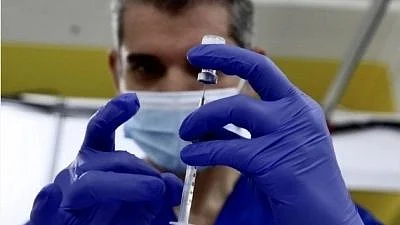Increasing efforts towards faster mass vaccination and virus surveillance is the key to ward off dangers posed by a triple-mutant coronavirus now present in the country, health experts said on Wednesday, 21 April.
The B1617 variant, first detected in Maharashtra, contains mutations from two separate virus variants – E484Q and L452R. The third mutation evolved from the double mutation where three different COVID strains combined to form a new variant.
Two of these triple-mutant varieties have been found in samples collected from Maharashtra, Delhi, West Bengal, and Chhattisgarh.
The RNA virus has the potential to acquire mutations as it replicates and spreads. These mutations can, sometimes, result in virus variants with better adaptability to its environment.
"As the virus spreads, it gets more opportunities to acquire mutations and evolve at a faster rate. This is a natural aspect of virus life-cycle but it is very important that we track these changes (virus surveillance) and follow the important viral characteristics associated with these mutations," Dr Veena P Menon, Faculty-In-Charge, Clinical Virology Laboratory, Amrita Institute of Medical Sciences, Kochi, told IANS.
While the SARS-CoV-2, causing the COVID-19 infections, has evolved at a much slower rate compared to Influenza or HIV viruses but as the number of infections rises, we are observing a rapid emergence of numerous viral variants.
With the increase in the number of infections and spread, there are more opportunities for the virus to mutate.
“As the infections are increasing at an alarming rate, there is a very high likelihood that we will encounter more virus variants in our population. Some of these variants get selected for faster transmissibility (spread) or ‘increased severity’ (more pathogenic) and also “immune (vaccine) escape”, Menon explained.
The evidence so far suggests that none of the important virus variants are associated with increased severity. However, an increased transmissibility is associated with the UK variant (lineage B1.1.7) while the Brazilian and South African variants exhibit ability to escape vaccine-induced immunity.
"Mutation in the respiratory virus is a natural process. This process is augmented in situations of high spread and presence of vaccinated people in the community. We will see more variants in India in future too," Dr Harshal R Salve, Associate Professor at Centre for Community Medicine, AIIMS New Delhi, told IANS.
Stricter implementation of public health infection control measures like usage of masks, social distancing and vaccinations are all key to prevent the spread. Besides, the need is to continue monitoring the virus evolution, the experts said.
"Combining genetic surveillance methods with evaluation of the biological and clinical characteristics of these virus variants will aid in better understanding virus variants and its clinical and public health impact," Menon added.
Vaccinations can play a great role in curbing the spread of COVID.
Covaxin, developed by Bharat Biotech, is able to "effectively neutralise" the double mutant strains, including the UK variant and the Brazil variant of the coronavirus, the Indian Council of Medical Research (ICMR) said in a report
